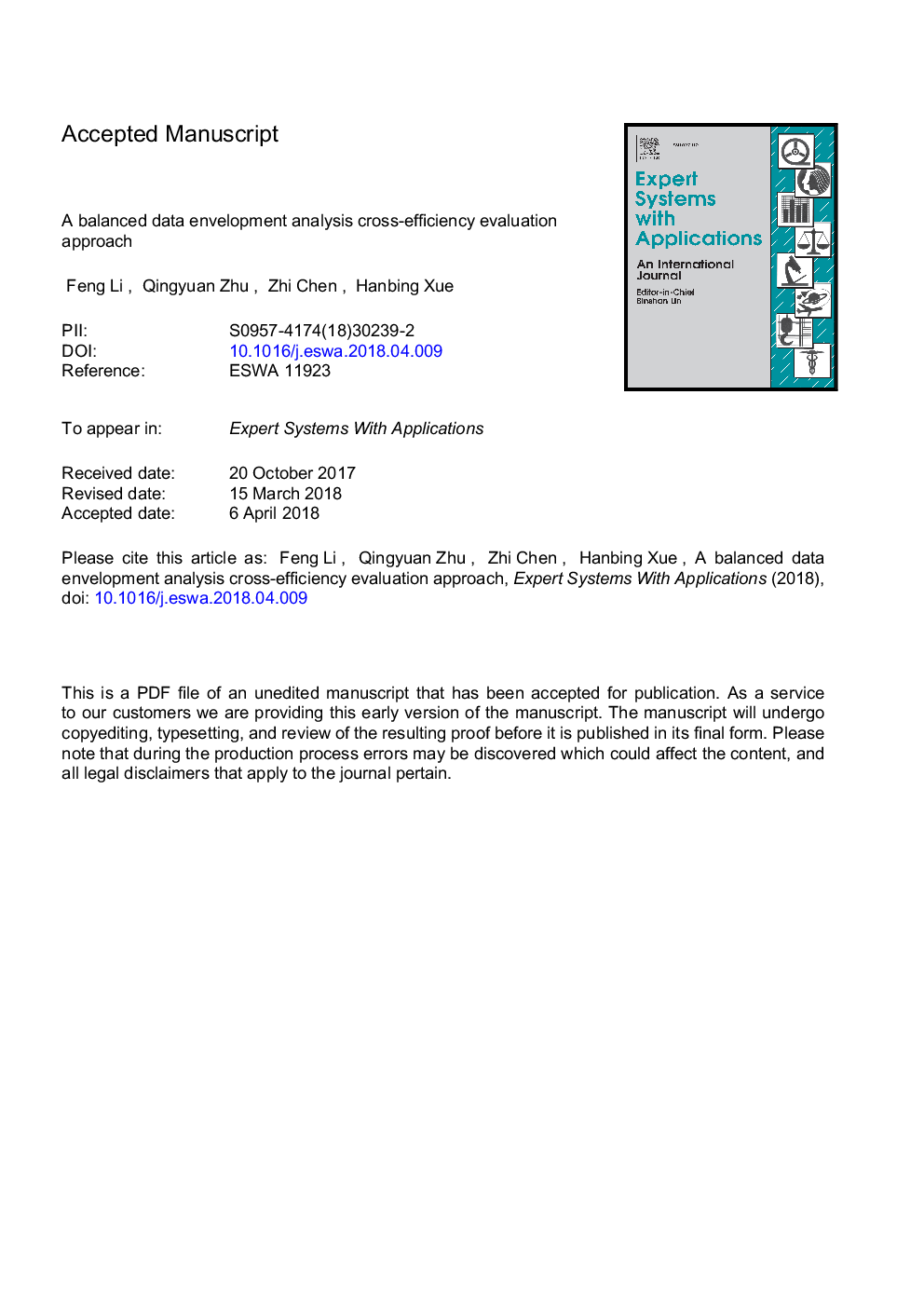| Article ID | Journal | Published Year | Pages | File Type |
|---|---|---|---|---|
| 6854937 | Expert Systems with Applications | 2018 | 42 Pages |
Abstract
Data envelopment analysis (DEA) is a frontier analysis procedure for evaluating the relative performance of decision making units (DMUs) with multiple inputs and multiple outputs. To improve its discrimination power, an important extension is proposed as cross-efficiency, which uses peer DMUs' optimal relative weights to evaluate the relative performance. However, the existing cross-efficiency methods show an inconsistent and unbalanced evaluation standard, since each DMU might determine a different total (or mean) efficiency value across all DMUs. The different values imply that the DMUs that have assigned larger cross-efficiency scores will have a larger effect in aggregating the ultimate cross-efficiency scores and different DMUs' effects are unbalanced in cross-efficiency methods. In this paper, we will deal with this unbalanced cross-efficiency evaluation problem. To this end, we first suggest a practical adjustment measure to rectify the traditional cross-efficiency, which will provide a common evaluation standard for all DMUs and make each DMU dispatch an identical total efficiency score across all DMUs. Further, we propose a game-like iterative procedure to obtain the optimal balanced cross-efficiency. Finally, we present both a numerical example and an empirical study derived from the literature and a real-world problem to demonstrate the usefulness and efficacy of the new balanced cross-efficiency evaluation approach. The work presented in this paper can extend the traditional cross-efficiency approaches to situations involving unbalanced evaluation standards, and make the evaluation results more practical significance.
Related Topics
Physical Sciences and Engineering
Computer Science
Artificial Intelligence
Authors
Feng Li, Qingyuan Zhu, Zhi Chen, Hanbing Xue,
